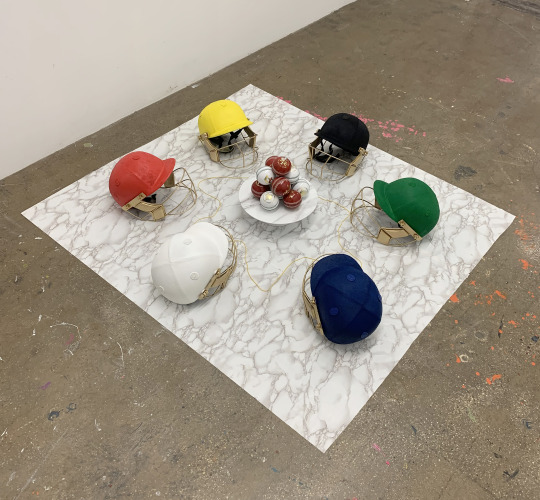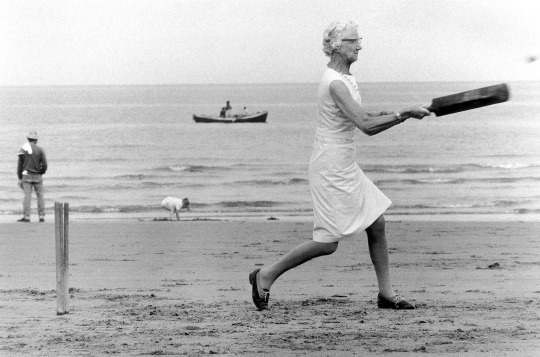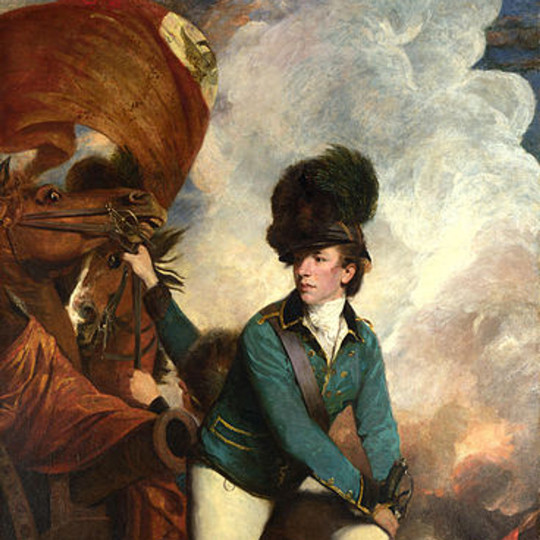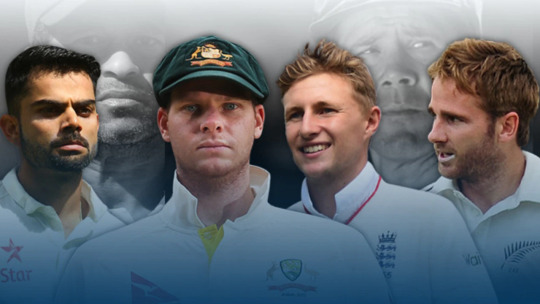#South African cricketer
Text
me today

#cuz Australia played shitty cricket this season#and i like south African national anthem#cricket#cricket world cup 2023#aus vs sa
28 notes
·
View notes
Text
south africa and rain has there ever been a more iconic duo
4 notes
·
View notes
Text
apex after midnight is hell … actual hell…
#gaming#gamers#text#psn#playstation#ps5#apex#apex legends#got called the R word at first by some South African probably annoyed they lost at cricket too…#no need for the abuse!!!#2nd lot were two guys calling me a little boy 🤡 then a crap teammate … get more mates? get a bigger willy? idk#absolute JOKE of a game with its hell hole fans#wish I never picked it up again#toxic teammates#why u trying to 2 v 4 ….#sounds like a skill issue not an us issue#how embarrassing for their mothers#they’ve got new modes and refresh or whatever it’s called for ranked …#and they’ve made it harder to report ppl … not that they actually care about ppl who play the games LOL#first r word as a diagnosed audhd … yea it hurts#might be a rubbish gamer but at least I’m not a rubbish person :)#honestly … stfu !!#no one English insulted me 👀
0 notes
Text
South Africa cricket Equal Pay for cricketer
0 notes
Text
Ask an older generation of white South Africans when they first felt the bite of anti-apartheid sanctions, and some point to the moment in 1968 when their prime minister, BJ Vorster, banned a tour by the England cricket team because it included a mixed-race player, Basil D’Oliveira.
After that, South Africa was excluded from international cricket until Nelson Mandela walked free from prison 22 years later. The D’Oliveira affair, as it became known, proved a watershed in drumming up popular support for the sporting boycott that eventually saw the country excluded from most international competition including rugby, the great passion of the white Afrikaners who were the base of the ruling Nationalist party and who bitterly resented being cast out.
For others, the moment of reckoning came years later, in 1985 when foreign banks called in South Africa’s loans. It was a clear sign that the country’s economy was going to pay an ever higher price for apartheid.
Neither of those events was decisive in bringing down South Africa’s regime. Far more credit lies with the black schoolchildren who took to the streets of Soweto in 1976 and kicked off years of unrest and civil disobedience that made the country increasingly ungovernable until changing global politics, and the collapse of communism, played its part.
But the rise of the popular anti-apartheid boycott over nearly 30 years made its mark on South Africans who were increasingly confronted by a repudiation of their system. Ordinary Europeans pressured supermarkets to stop selling South African products. British students forced Barclays Bank to pull out of the apartheid state. The refusal of a Dublin shop worker to ring up a Cape grapefruit led to a strike and then a total ban on South African imports by the Irish government.
By the mid-1980s, one in four Britons said they were boycotting South African goods – a testament to the reach of the anti-apartheid campaign. . . . The musicians union blocked South African artists from playing on the BBC, and the cultural boycott saw most performers refusing to play in the apartheid state, although some, including Elton John and Queen, infamously put on concerts at Sun City in the Bophuthatswana homeland.
The US didn’t have the same sporting or cultural ties, and imported far fewer South African products, but the mobilisation against apartheid in universities, churches and through local coalitions in the 1980s was instrumental in forcing the hand of American politicians and big business in favour of financial sanctions and divestment.
By the time President FW de Klerk was ready to release Mandela and negotiate an end to apartheid, a big selling point for part of the white population was an end to boycotts and isolation.
Twenty-seven years after the end of white rule, some see the boycott campaign against South Africa as a guide to mobilising popular support against what is increasingly condemned as Israel’s own brand of apartheid.
. . . continues at the guardian (21 May, 2021)
#israel#palestine#gaza#south africa#i think all of us need to seriously study the history and actions of the anti-apartheid movement#and apply these lessons to the israeli occupation
3K notes
·
View notes
Text
i find it so funny that literally most of my favourite women cricketers from a few years back are queer in some sort of way ashdjsgfsfk
#its just such an unexpected coincidence#like yeah 2 of my favourite south african women's cricketers? BOOM they're fucking married#hell yeah we stay winnin#methinks mesays.
0 notes
Photo








LET THEM EAT CAKE! 2022 – measurements variable, acrylic, leather, string, plastic, titanium, stainless steel, plastic, fibreglass, carbon fibre, high density foam, aerosol on fabric, polystyrene | featured with art.co.za (http://www.art.co.za/joeturpin/) | produced toward my MFA Degree at the Pratt Institute 🏏
Growing up in South Africa, one of the many sports I played as a child was cricket. I played at home, mostly with my primary school team and for a brief period I also played for an academy. I was what they call an ‘all-rounder’ in position, enjoying bowling, batting and fielding equally. I wasn’t great but I wasn’t bad either. As I entered my teenage years this part of my life gave way for a love of football (soccer) instead, as well as artwork production. After this I even became critical of the sport. It is mostly played and embraced by countries which are former British colonies, and can be seen as a legacy of colonialism and imperial exploit in Africa, Asia and the Caribbean. In South Africa itself in recent years the sport’s official organisation and figures have been embroiled in heated exchanges, after Black players took the symbolic knee in support of the Black Lives Matter movement. The game in my home country has, not wholly but in majority, been impassioned and played by the white communities, along with Rugby. To return to this theme, of the sport of cricket, in an artwork is therefore a confrontation. It is an uncomfortable look in the mirror that is an interrogation of my identity as a South African, and an interrogation of whiteness and post-colonial reality. Ironically enough, it has taken me being temporarily based in the United States, in New York, for me to conceptualise this artwork. I could not be more far removed from the game than I am now. Physically perhaps, but not mentally. As a South African I look back at my childhood enjoyment and participation of and in cricket with an element of huge nostalgia. That time in my life was one of days of stability, where my family members I have now lost were still around, and things seemed more blissful. Some of my first artistic exploits as a child was to trace and draw the photographs of the cricket players in the weekend newspapers my family had delivered to our home. The work consists of six cricket helmets, one for each of the colours on the South African flag, with gold face protection bars instead of the usual manufactured colour, surrounding and looking inward onto a marble-coloured cake tray, the kind commonly available in homeware supermarkets here in the USA. On top of the tray sits twelve cricket balls, six white and six red (such are the colours of the balls in official matches), but not in a separated order. The balls will be mixed up like a chess board to integrate the division of colour. Like baseball, so cricket. Like checkers, so chess. This is a geopolitical work of identity hybridity, unity and simultaneously, of critique. A cricket critique.
#Joe Turpin#Turpin#Art#Cricket#Conceptual Art#African Art#Contemporary Art#Contemporary African Art#Conceptual African Art#South Africa#South African Art#Sport Art#Installation
0 notes
Text
lol i am so glad i didn't wake up/stay up to watch this game, these proteas have choked even before getting to the semis 😂 what a shitty team 😂 jokes 😂 clowns 🤡 come home and quit international cricket once .......
#imagine playing so well the first few games and then bottling it at the end#they deserve nothing#i hope they never see a world cup final ever. they must choke in group stages and die#anyways. im super thankful i didnt waste my sleep on this shitty team. just woke up for fajr and decided to check the score#found these clowns needing 36 off 2 overs and i thought to myself. wow. you cant trust south african men.#cricket tag#t20 wc 2022#ned v sa
1 note
·
View note
Text

An elderly woman plays cricket with her family on the beach, Whitby, England, 1974 - by Ian Berry (1934), English/South African
87 notes
·
View notes
Text
by Ben Cohen
South African Jews reacted with outrage on Friday after the country’s governing body for the sport of cricket stripped the Jewish captain of the U-19 national team of his role, citing the “risk of conflict or even violence” as the reason.
Cricket South Africa (CSA) announced that David Teeger, who is Jewish, would no longer captain the side just one week before the opening of the U-19 Cricket World Cup, when teams from 16 nations will compete in South Africa for the sport’s top prize.
In a statement released on Friday, CSA said that its security team had advised “that protests related to the war in Gaza can be anticipated at the venues for the tournament.”
It added that such protests would likely focus on Teeger — an observant Jew and resident of Johannesburg who made his professional cricket debut in 2023, scoring an impressive 51 runs for the South Africa Emerging Players side against North Cape. Teeger was only appointed to the captaincy of the U-19 team last month.
The targeting of Teeger could result “in conflict or even violence between rival groups of protestors,” CSA said. Invoking its “duty to safeguard the interests and safety of all those involved in the World Cup,” it said that Teeger had been “relieved of the captaincy … in the best interests of the players, the U-19 team, and David himself.” Teeger would “remain an important and active member of the team and we wish him and the team every success in the tournament,” CSA concluded.
CSA’s decision — against the background of rising antisemitism in South Africa, widespread support for Hamas in the wake of its Oct. 7 pogrom in Israel, and the charge of “genocide” brought by South Africa against Israel at the International Court of Justice (ICJ) — provoked fury in South Africa’s Jewish community.
Prof. Karen Milner, chair of the South African Jewish Board of Deputies (SAJBD), told The Algemeiner that CSA’s decision was “an outrageous act of antisemitism.”
“There is no basis for this decision, other than the fact that Teeger is Jewish,” Milner said. “It is shameful that CSA is embarking on a path that is dangerously reminiscent of Nazi Germany, when Jews were actively discriminated against, including among sporting clubs.” She stressed that the SAJBD “would do everything in its power to fight against this vicious prejudice.”
In a separate statement, the South African Zionist Federation (SAZF) said it would be calling on the International Cricket Council (ICC), the sport’s global governing body, “to investigate the CSA’s blatant act of discrimination.”
“The ANC [ruling African National Congress] government’s political hostility to Israel and its friendship with Hamas has created a climate in which it is entirely acceptable to target a sportsman because he is proudly Jewish,” the SAZF stated.
Among those expressing sympathy for Teeger on social media was three-time MLB All-Star Kevin Youkilis. “Heart goes out to this young Jewish man,” Youkilis posted on X/Twitter. “The ‘security risk’ excuse is bullshit.”
Former Boston Red Sox star Youkilis also referred to a speech that Teeger made just weeks after the Hamas pogrom, delivered after he received the “Rising Star” Award at a Jewish community ceremony. Teeger paid tribute to the Israeli military, saying, “Yes, I’ve been [given] this award, and yes, I’m now the Rising Star, but the true rising stars are the young soldiers in Israel.” He went on to dedicate the award to “the State of Israel and every single soldier fighting so that we can live and thrive in the diaspora.”
Teeger was being “punished for showing gratitude to the State of Israel,” Youkilis commented.
94 notes
·
View notes
Note
People will call me racist for disliking the Hades game designs but when I ask them why they think it is awesome representation for South Asian and African characters to sound british in the same game that has more blond people than POC, suddenly all I hear is crickets
The Hades game has many positive attributes but they did the classic USAmerican "representation" stuff, and they Americanized it so much that even that representation is racist 😂 I mean it is already racist to forcefully diversify a pantheon of Mediterranean gods because they "all look the same" or something (Sorry that North Mediterranean Indigenous populations exist, I suppose). But they also, in the old classic western fashion they made many characters look either Germanic-AngloSaxon or ONLY one of the minorities these Germanic-AngloSaxons are familiar with). And of course they act like this is American minority representation because nothing screams United States of America like ancient Greek gods and characters in chitons.
22 notes
·
View notes
Text
South Africa strikes yet again with more “antizionist” bullshit by expelling their Jewish captain from their cricket team.
This was never about Israel, but Jews as a whole. I urge South Africa’s Jews to leave.
50 notes
·
View notes
Text
Is this a safe space to finally say that the BKW promotion WAS NOT ENOUGH and started a bit too late?
A movie as fun and full of action like this one deserved more. For what I've read in Twitter / X not even south African people knew about this.
In Latin America I saw more ads from the distribution companies ( in Portuguese and Spanish) but the bkw ig page doesn't seem to have paid for ads on IG or fb.

And to make things worse, the face: Bill Skarsgård didn't do anything else to promote it besides attending the premiere. Valter and Eija did more for him by sharing the clip and trailer on their IG stories.
I mentioned this before I'll say it again , there were Q&A clips from the red carpet SAM RAIMI himself took the time to play along and answer ... Where was the star? *crickets*
This past week the zendaya movie premiered too and did better than BKW marketing wise because since the beginning people were able to link one face to the product. Bill could have done the same , putting himself out there to compensate the -lets admit it - lazy marketing campaign.
Let's hope things get better in the near future , because if Lionsgate and Bill's team are going to manage the promotion for "The crow" like this then ... It'll flop terribly.
18 notes
·
View notes
Photo

Banastre Tarleton
Banastre Tarleton (1754-1833) was a British military officer and politician, most famous for his role in the southern campaigns of the American Revolutionary War (1775-1783). In command of an elite unit of Loyalists called the British Legion, Tarleton gained a reputation for aggression and cruelty, with Patriots even coining the phrase 'Tarleton's Quarter' to refer to his mercilessness.
Tarleton joined the British Army in April 1775 at age 20 after blowing through his inheritance. Sent overseas to fight the American rebels, he soon became one of the most infamous British officers of the conflict. Called 'Bloody Ban' after his men massacred surrendering American soldiers at the Battle of Waxhaws, Tarleton led his British Legion on raids throughout the American South, their plumed leather helmets and green jackets striking fear into the hearts of many Patriots. Defeated by Daniel Morgan at the Battle of Cowpens (17 January 1781), Tarleton nevertheless managed to return to England after the war with his reputation intact. He began a long political career in Parliament, in which he notably defended the slave trade, before his death on 15 January 1833 at the age of 78. He is best remembered today for his ruthlessness during the war, although many tales of his cruelty have been exaggerated.
Early Life
Banastre Tarleton was born in Liverpool, England, on 21 August 1754, the third of seven children born to John Tarleton and his wife Jane Parker. John Tarleton was a successful businessman involved in the Caribbean sugar trade and owned plantations in Jamaica, Curaçao, and several other islands in the West Indies. By the 1760s, the elder Tarleton owned three ships that were primarily used to deliver enslaved Africans to Jamaica; indeed, much of the Tarleton family's wealth was derived from the slave trade. In 1764, John Tarleton (or 'Great T' as he was called by his constituents) was elected mayor of Liverpool and served a single one-year term. In 1768, the elder Tarleton tried to stand for election to Parliament, but a mob of whalers prevented him from running.
Banastre (or Ban, as he preferred to be called) attended school in Liverpool. Intelligent, handsome, and charming, he was not a diligent student, preferring to spend his time playing cricket; despite his small physique, he was surprisingly strong and enjoyed many other athletic activities like boxing, horseback riding, and tennis. In the autumn of 1771, Ban and his older brother Thomas were sent to Oxford to study at University College. Tarleton remained there until 6 September 1773, when his father unexpectedly died, leaving him an inheritance of £5,000. With this small fortune, Tarleton headed to London to begin studying law at the Middle Temple. His studiousness had not much improved, however, as Tarleton often neglected his studies in favor of attending the theatre or drinking and gambling at the fashionable Cocoa Tree club. It was not long before he had nearly exhausted his inheritance, forcing him to drop out of law school.
During this period of adolescent partying, the wayward Tarleton befriended several British army officers, who likely helped put his thoughts on a military path. On 20 April 1775, the 20-year-old Tarleton purchased a cornet's commission in the King's Dragoon Guards, one of the most prestigious regiments in the entire army. It was an interesting time to enter military service, as only the day before, the Battles of Lexington and Concord had been fought on the other side of the Atlantic in the British colony of Massachusetts, sparking the American Revolution. After several months of intensive training, Cornet Tarleton was finally sent to North America in February 1776, setting sail from Cork, Ireland, under the command of Lord Charles Cornwallis. Little did Tarleton know that by the time his service in the New World was over, he would be regarded as one of the most infamous men in America.
Continue reading...
11 notes
·
View notes
Text
Who is the Cricket World's Best Player?

The question of who is the greatest cricketer of all time has been a perennial debate among fans and pundits alike. While the answer is often subjective and influenced by personal biases, there are several players who have consistently dominated the sport and made a strong case for the title. Let's explore some of the contenders and the factors that contribute to their greatness.
The Modern Era Dominators: Kohli, Smith, and Kane Williamson

The past decade has witnessed the rise of three exceptional talents who have redefined the standards of batting. Virat Kohli, Steve Smith, and Kane Williamson have consistently produced match-winning performances across all formats, solidifying their status as the modern era's premier batsmen.
♯1. Virat Kohli: The Indian captain's aggressive style, impeccable timing, and ability to adapt to different conditions have made him a nightmare for bowlers. His record-breaking centuries and his leadership qualities have cemented his place among the all-time greats.
♯2. Steve Smith: The Australian's unorthodox technique and his ability to score runs at will have made him a force to be reckoned with. Smith's consistency and his ability to perform under pressure have earned him widespread admiration.
♯3. Kane Williamson: The New Zealand captain's elegant strokeplay and his calm demeanor have made him a joy to watch. Williamson's ability to anchor the innings and his match-winning performances have solidified his reputation as one of the best batsmen in the world.
➥ Also Read: Indian Cricket Team Schedule 2024-2025
The All-Round Legends: Imran Khan, Kapil Dev, and Jacques Kallis

The all-rounders who have excelled in both batting and bowling have always been held in high regard. Imran Khan, Kapil Dev, and Jacques Kallis are among the most iconic all-rounders of all time.
♯1. Imran Khan: The former Pakistan captain's swing bowling and his classy batting made him a complete cricketer. His leadership qualities and his contributions to his country's success have earned him legendary status.
♯2. Kapil Dev: The Indian fast bowler's ability to swing the ball both ways and his useful batting made him a valuable asset to the team. His leadership in the 1983 World Cup-winning team cemented his place in Indian cricket history.
♯3. Jacques Kallis: The South African all-rounder's consistency and his ability to perform in all conditions have made him one of the greatest cricketers of his generation. His contributions with both bat and ball have been invaluable to his country.
➥ Also Read: Indian Cricket Team Schedule 2024-2025
The Timeless Greats: Don Bradman, Sachin Tendulkar, and West Indies Legends

While the modern era has produced some exceptional talents, there are a few players who have transcended generations and are considered among the greatest of all time. Don Bradman, Sachin Tendulkar, and the West Indies legends of the 1970s and 1980s are among the most revered names in cricket history.
♯1. Don Bradman: The Australian legend's batting average of 99.98 remains the highest in Test cricket history. His dominance over bowlers and his ability to score runs at will have made him a mythical figure in the sport.
♯2. Sachin Tendulkar: The Indian "Master Blaster" broke countless records during his illustrious career. His ability to adapt to different conditions and his consistency have made him one of the most beloved cricketers of all time.
♯3. West Indies Legends: The West Indies teams of the 1970s and 1980s boasted a formidable lineup of fast bowlers and powerful batsmen. Players like Clive Lloyd, Viv Richards, Gordon Greenidge, and Joel Garner dominated world cricket for over a decade.
➥ Also Read: Indian Cricket Team Schedule 2024-2025
#Sports#Sports News#Sports Updates#Olympics#Olympic Games#Paris Olympics 2024#Latest Sports News#ICC#BCCI#Cricket#Cricket News#IPL Mega Auction#IPL 2025 Auction#IPL 2025 Updates#IPL 2025#FIFA#FIFA World Cup#Soccer News#Football Updates#India Cricket#Indian Cricket Team#Indian Athletes#Indian Premier League#Cricket World Cup#Cricket Teams#Champions Trophy#ODI World Cup#T20 World Cup#World Test Championship#T20 Cricket Leagues
8 notes
·
View notes
Note
The houthis atacked israel Ships because they are antisemitisc plus they are starving yemenis
They might be for Palestine but they are not the Good guys
Israeli ships are being targeted because they are carrying and supplying weapons to Israel.
Which are being used to kill Palestinians.
But also because attacking the ships will encourage other countries to halt trade with Israel.
This actually was a key step in the eventual dismantle of the South African apartheid.
And lest we forget, Israel is an aphartied state.
Aphartied for those that don't know is a policy that is founded on the idea of separating people based on racial or ethnic criteria.
So, racism and thinking your race is more superior than another. Like thinking Israeli's are superior to Palestinians and Arabs in general.
The at the time, Jamaican Cheif Minister Norman Manley during the South African apartheid said:
"The ban on trade with South Africa is logical and proper. And done in respect of a country which denies its own people all the basic human rights. And denies coloured people all over the world every right to human rights intercourse.
Since we cannot send a coloured athlete to South Africa nor even a cricket team with any pretense of dignity. Why should we send our goods?"
I bring up Jamaica because they were one of the first nations to condemn South African apartheid.
They banned trade and travel with South Africa despite still being a British Colony.
Something that in a lot of ways mirrors how Yemen, is one of the first countries to act in direct resistance to Israel.
So no it's not antisemitic, just a tried and true method used to aid in the dismantle aphartied regimes.
But than Pro Israeli's much like the Israeli government see every form of resistance against them, no matter if it's peaceful or violent, as antisemitic and terrorism.
Israel can tell the world it wants to make Gaza into Auschwitz but than be afraid and mad when Palestinians want to be free from the river to the sea.
As for the second part of your ask... What are you 5?
Newsflash, there are no perfect heroes this isn't a movie or a cartoon.
Turkey stands with Palestine, they're sending a case to the International Criminal Court in regards to Israel's genocide of the Palestinians.
Which is great.
Doesn't negate the whole Armenian Genocide and the shit they're doing to Kurdish people.
Britain's over here talking about a ceasefire when they've still got colonies.
They're funding the civil war in Sudan, the atrocities against the Congolese and many many more.
Not to mention shipping weapons to Israel.
All of this doesn't mean they shouldn't be speaking out against Israel.
In fact I'd argue it's a more of a reason for them to speak up, because they have the power too.
Also on the topic of starving Yemen, let's not pretend that the UN didn't drop Yemen from their world food programme.
Seemingly in response to Yemen standing against Israel.
Which means the UN like Israel are inflicting collective punishment. Which is both a war crime and a violation of international law.
Yemen standing up for Palestine is a brave and amazing thing, because they have nothing and are doing everything.
Of course they have their own issues, but that doesn't suddenly make what they're doing to aid Palestinians have any less of an affect.
"They aren't the good guys"
Be fucking for real, every country has blood on its hands.
Some more so than others. And those continuing to cause bloodshed need to be held accountable.
That doesn't change that Palestine deserves to be free. As does Yemen as does every country and people facing oppression.
Isrsel has been actively committing a genocide for 75 years, they need to be stopped.
That's an indisputable fact.
#free palestine#free gaza#yemen#free yemen#anti israel#turkey#turkiye#armenien#kurdish#free congo#free sudan#anti zionisim#uk#jamaica#united nations#long post
22 notes
·
View notes